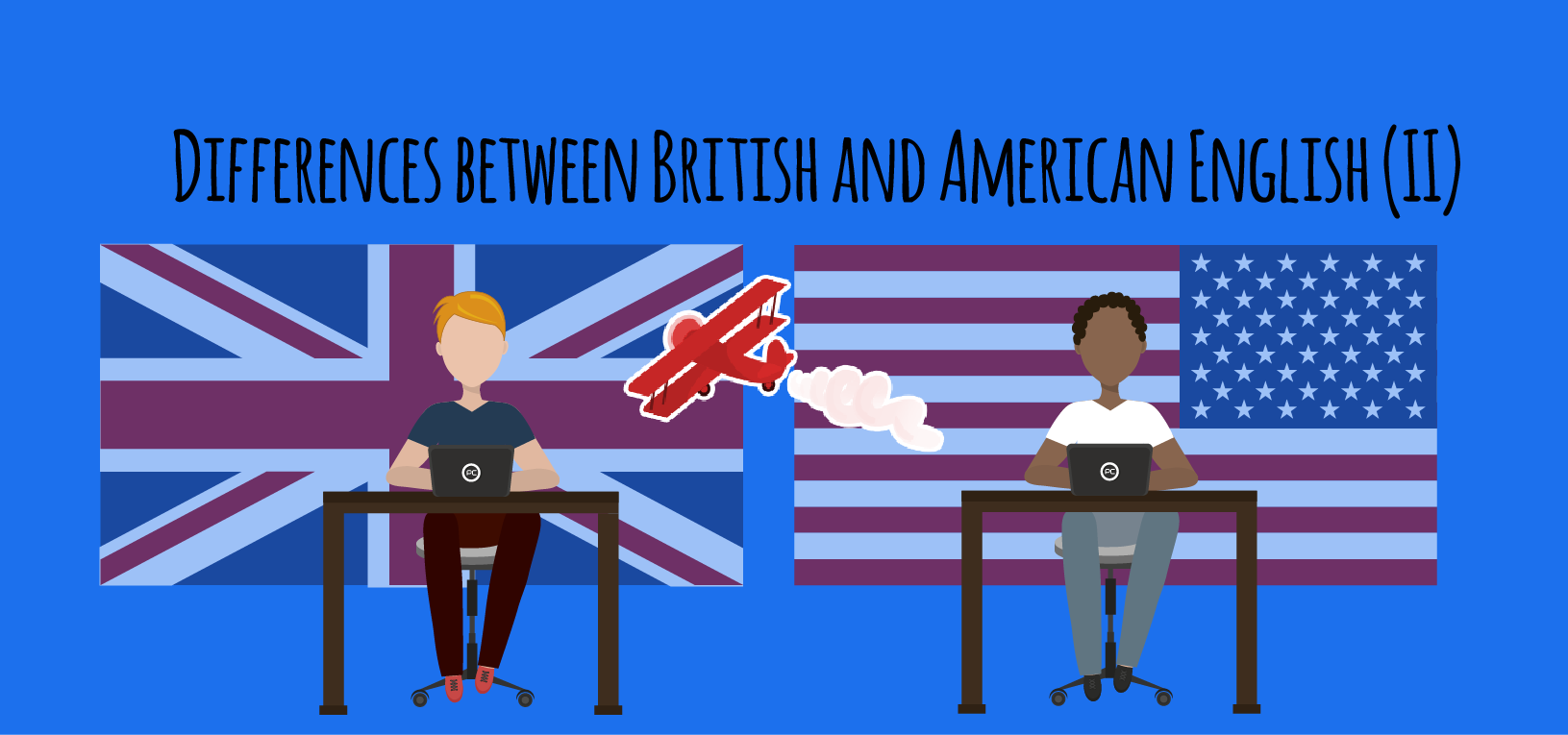Differences between British and American English (II)

Differences between British and American English (II)
INDEX OF CONTENTS
- Arrival of the settlers and their rotic speech
- Spelling differences
- Different grammar
- In conclusion
The English brought their language to America between the 16th and 17th centuries, when they arrived in these lands by sea. While, in England, the dictionary was set up by academics living in London, in the United States, the lexicographer was a man named Noah Webster. From what is clear, this man varied the way in which the words were written, with the aim of making the American version different from the British one, thereby trying to demonstrate the cultural independence of his mother country.
Arrival of the settlers and their rotic speech
Speech differences between American and British English began to take place after the first settlers arrived in the United States. These were groups of people who spoke using what came to be called “rotic” speech, in which the “r” sounds of words were pronounced.
At the same time, the upper classes in the UK did the opposite, wanting to distinguish the way they spoke from the common masses by softening the way they pronounce the “r” sounds. Since elite groups were already considered the standard for being fashionable at that time, other layers of people began to copy his speech, until it finally became the common way of speaking in the south of England.
Spelling differences
There are some spelling differences between British and American English. The most common are exposed in the following table.
British English | American English |
|
|
|
|
|
|
|
|
|
|
|
|
|
* Note that American English also recognizes words written with –ogue |
|
|
|
|
Grammatical differences
- Apart from spelling and vocabulary, there are some grammatical differences between British and American English, as in American English, collective nouns are singular (for example, The band is playing “The band is playing”). In contrast, collective nouns can be both singular and plural in British English, but the plural is used more frequently (for example, The band are playing.
- The British have a greater inclination for formal speech , such as “shall” (should), while Americans favor the more informal “will or should” (want or should).
- The Americans, however, continue to use “gotten” (gotten) as the past participle of “get” (to obtain), which the British long ago dropped in favor of “got” (has).
- Commonly used in British English, “Needn’t” is rarely, if ever, used in American English. Instead, it is “don’t need to”.
- British English: a (at) is the preposition in relation to time and place . On the other hand, in American English, “en” (on) is used instead of the first and “en” (in) for the second.
In conclusion
While it is true that there are certain differences between American and British English , the reality is that there are many similarities between the two.
The eventual use of one instead of the other will not cause any lack of communication. Americans and British generally communicate with each other without too much difficulty, so forgetting some of the nuances outlined in this article will not result in any consequence.
We hope you liked this new compilation of differences between British and American English. And before saying goodbye, we remind you that there are still calls available if you want to obtain your official language degree in 2021.


